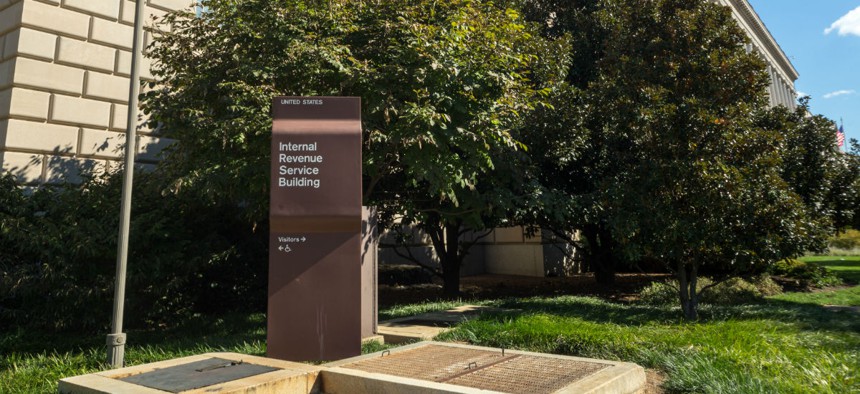
By blvdone / Shutterstock.com
IRS Urged to Discourage Employees From Giving Closed-Door Speeches
IRS stresses that it continually works to allow reporters when officials speak.
Most who followed the loud controversy over alleged political targeting by the Internal Revenue Service beginning in 2013 know that it was set in motion by an IRS official’s statements at a conference—this one by the American Bar Association.
That’s one reason many reporters on the tax beat consider it essential that they not be denied access to private conferences at which taxpayer-paid agency officials are speaking.
Last week, Paul Streckfus, longtime editor of the Exempt Organizations Tax Journal, wrote to newly installed Commissioner of Internal Revenue Charles Rettig asking that he “make clear” to his employees that “they should not accept invitations to speak at programs that restrict press coverage, nor should they hide their participation.”
Streckfus, who wrote a similar letter to past Commissioner John Koskinen and got a favorable reply, asked Rettig to “make clear to your employees that neither they nor program sponsors ‘own’ their remarks. Instead, the copyright to their remarks resides with the American people, whose taxes pay their salaries.”
The editor specifically mentioned an organization with which he has a history of conflict, New York University’s National Center on Philanthropy and the Law. Streckfus several years ago was disinvited from invitation-only conferences by the group after he reported remarks from none other than Lois Lerner, the now-retired IRS official at the center of the years-long dustup over the agency’s alleged political bias in handling applications for tax-exempt status from conservative nonprofits.
Streckfus, who has been complaining of such restrictions on press access since 1999, wrote last Thursday that NYU’s October event is “subject to significant restrictions on press coverage, yet it appears that at this highly secretive conference one or more IRS employees attend each year. Who knows what tax policy and interpretation advice they give out each year, known only to attendees?”
Asked to comment on the letter to Rettig, an IRS spokesman told Government Executive that “the IRS has a long-standing practice of ensuring media access to the portions of public events where IRS officials are speaking. Reporters who are unable to access events can always call the IRS press office for assistance.”
That position was echoed by Jill Manny, an organizer of the NYU center’s annual event, which “is open to the press,” she said via email. “In fact, the NCPL sends invitations to general publication and trade publication press in order to encourage press attendance at and participation in the annual proceedings,” she said. “Any journalist who wishes to attend an NCPL annual conference may do so upon agreeing, in writing, to the following statement: ‘As a member of the press, I agree to follow the one ground rule in covering it: although I may cover any part of the conference, I may not attribute anything to a speaker without the permission of that speaker.’ ”
Manny added that “Every year, the IRS office—in charge of deciding whether conferences are 'open' so that IRS employees may attend—inspects our protocols and rules and each year it has found that our conferences are ‘open’ and eligible for IRS employees to attend.”
Chuck O’Toole, a senior executive editor of Tax Analysts, told Government Executive that “conference sponsors absolutely do still try to close sessions to the press, or they try to tell our reporters to treat official speakers as off the record. For the past several years, the IRS media affairs office has had our backs on this problem and has worked with us to open up these events,” he added. “I hope and trust that under Commissioner Rettig, the service will maintain and strengthen that commitment to open discourse.”
Streckfus said he won’t be satisfied until the commissioner puts out a formal statement making clear the obligations of program sponsors to permit free reporting. The agency’s current approach “is wishy-washy,” he told Government Executive, and allows an escape valve. He hasn’t personally returned to the NYU conference, he said, because he won’t promise to obey the rules.
NEXT STORY: Play of the Day: Kelly and Bolton Get Into It







